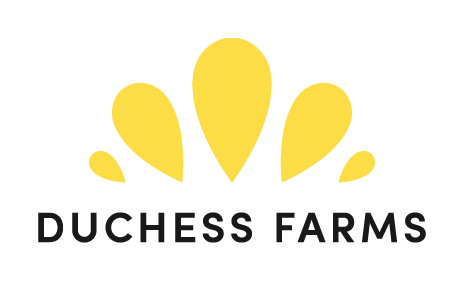Health Benefits and Uses of Cold-Pressed Rapeseed Oil
We see rapeseed oil how the mediterranean’s see olive oil. It should be the UK’s go-to oil, stocked in every household and used for almost everything. It’s the perfect answer to perfect roast potatoes, vibrant salad dressings and flavourful marinades. It can even replace butter when baking to reduce saturated fat content.
With so many oils on supermarket shelves these days, it can be difficult to know which one to use. So let us explain some of the health benefits, characteristics and uses of rapeseed oil.
This post is intended to provide a quick snapshot, I am most definitely not a doctor so please stick with any professional medical advice you have been given!
Characteristics & Uses
Colour - Duchess Oil is a wonderful golden colour. This may vary amongst different rapeseed producers depending on their production methods but our slow process really brings out a strong vibrant colour to the finished oil.
Nutritional - Low in saturated fat, hight in unsaturated fat, rich in Omega’s 3, 6 & 9 and high levels of Vitamin E
Texture - Unlike some oils, rapeseed oil has a very clean and light finish meaning it doesn’t leave a coating on your tongue.
Flavour - Whilst not as strong as something like olive oil, rapeseed oil has its own distinct nutty flavour and will generally compliment the flavour of your ingredients instead of overpowering them.
High Burning Point - Burning your oil is bad. Not only does it ruin the flavour but it can also be carcinogenic. Using an oil with a high burning point like rapeseed oil (238 degrees Celsius) compared to an alternative like olive oil (180 degrees celsius) means you can really heat up your oil for searing and roasting.
Good Fats and Bad Fats (Unsaturated & Saturated)
Cutting down on saturated fat is a great way to lower your cholesterol and look after your heart. And it’s just as important to replace some of this with unsaturated fats. Cold-pressed rapeseed oil is high in unsaturated fats so when used in cooking to replace butter or oils high in saturated fats like coconut oil, your heart will thank you!
As with most things in life, moderation and balance are key. A balanced diet will contain some saturated fat and hopefully, a majority of unsaturated fat. Duchess Oil has a 1 in 9 ratio of saturated to unsaturated fat.
Saturated fat can help to raise bad cholesterol (LDL) so it is important to regulate how much your body consumes. Per the British Heart Foundation, this equates to roughly 20g a day for women and 30g a day for men.
Some popular foods with higher levels of saturated fats are:
Processed meats (sausages, ham burgers etc.)
Full fat dairy products
Butter & coconut oil
Cakes & pastries
Unsaturated fats are generally considered the good fats and are broken down into two categories:
Polyunsaturated - these help to lower bad cholesterol (LDL) and promote good cholesterol (HDL) and provide essential fatty acids
Monounsaturated - maintain good cholesterol and associated with good heart health
Types of food with unsaturated fats:
Fish
Some oils including RAPESEED
Nuts and seeds (sesame, flax etc.)
Peanut butter
Avocado
Olives
For further reading:
https://www.heartuk.org.uk/healthy-living/cholesterol-lowering-foods
https://www.bmj.com/content/361/bmj.k2139
https://www.rapeseedoilbenefits.com/7-different-uses-rapeseed-oil/
https://www.greatbritishchefs.com/features/why-use-rapeseed-oil
https://www.bhf.org.uk/informationsupport/support/healthy-living/healthy-eating/fats-explained


